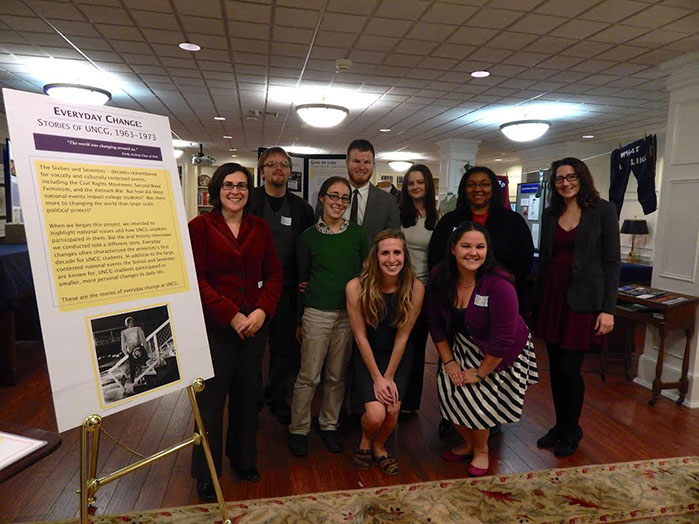
WHY HISTORY?
Hold History in Your Hands
Study History at UNCG and you’ll have the chance to read primary sources from different time periods and cultures, visit local museums, study abroad, participate in archeological digs, and even organize your own exhibits.
 |
 |
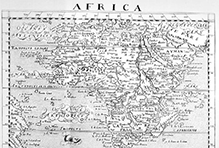 |
Handling and reading primary sources
History courses at all levels give students the opportunity to read and assess primary documents--firsthand accounts of the past such as court cases, diaries, letters, and novels.
In HIS 391, Historical Skills and Methods, required of all history majors, students will analyze a variety of primary and secondary source materials and design a project focus. In short, you will learn the nuts and bolts of doing History!
In HIS 411, Seminar in Historical Research and Writing, the capstone seminar normally taken in the senior year, students further develop these skills. Working together with your instructor and closely with UNCG’s library technologists and the liaison to the history department, you will master the tools of the trade: assessing the source material, creating a bibliography, and writing a research paper.
Listen to history major Kyle Pope talk about his experience working with librarians and archivists at UNCG on his award winning research paper. Kyle researched the history of electricity at UNCG using evidence from a 1915 scrapbook created by students in the YWCA club who were among the first to experience electricity on campus. Besides working with documents in an archive, history majors also learn how to interpret other types of historical sources, such as photographs or music or objects, or they may learn how to interview people who are still living to collect oral histories for the purpose of research or public exhibits.
Local museums

The UNCG History Department works with a number of local museums, including the Weatherspoon Art Museum and the Greensboro Historical Museum.
Undergraduates have special opportunities to view UNCG’s Weatherspoon Art Museum (WAM), one of the leading collections of 20th and 21st century American art in the Southeast. Read more about the standards for visual literacy developed by the Association of College and Research Libraries in 2011.
Students in UNCG’s Museum Studies program have further opportunities for training in the practice and scholarship of public history. With guidance from professors Torren Gatson and Anne Parsons, students work in the community and create their own public history projects. Through rigorous coursework, internships, and practicums, they develop knowledge and hands-on skills that enable them to thrive in the profession.
Study Abroad
The nineteenth-century English novelist L.P. Hartley wrote in his romantic novel The Go-Between: “The past is a foreign country: they do things differently there.”
Take a trip to the past on one of our many approved study abroad programs.
Contact Dr. Anderson in the history department if you have further questions about studying abroad as a history major.
Archeological digs

Not all historical evidence is archived in museums and libraries. Sometimes historians have to “dig deeper” using the tools of archaeology to uncover historical objects from ancient times.
Since 2006 UNCG professor of history Asa Eger has worked on the southeastern coast of Turkey excavating a medieval settlement on the Islamic-Byzantine frontier. Throughout its four centuries of occupation (8-12th centuries), the site changed hands from Islamic to Byzantine control. It was known in Arabic sources as the Castle of the Figs (H)is)n al-Tīnāt) and was important for linking Syria and Anatolia (or Islamic and Byzantine lands) and for its location at the foot of the Amanus Mountains – home to the most prized tall timber stands in the eastern Mediterranean.
In the summers of 2010 and 2011 Dr. Eger enrolled UNCG students in a four-week summer field school in Turkey, where they learned a range of archaeological hands-on skills and methods. As assistant supervisors in the field, they worked closely with international doctoral students from other universities.
Exhibitions
Students in the Museum Studies program create moving and innovative public history exhibits on campus and in the greater community.
Featured Projects:
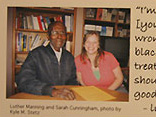 Hear's My Story » |
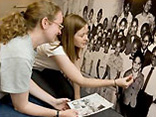 Class of '63 » |
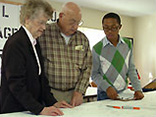 Threads in Greensboro's Past » |
